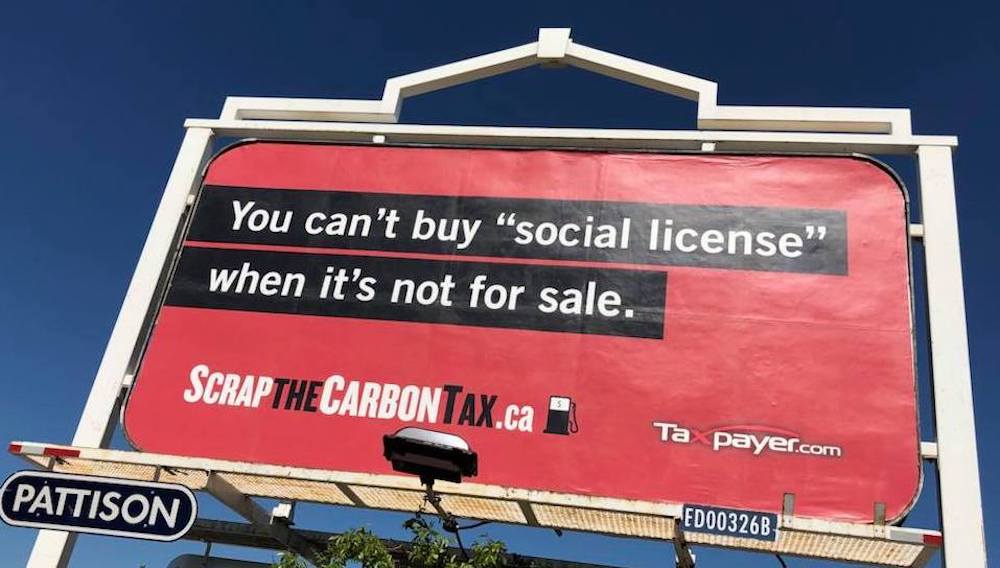The $6,000 administrative penalty levied against the Canadian Taxpayers Federation (CTF) for failing to register as a third-party advertiser under Alberta’s election financing law is a long-overdue official recognition of the true role the self-described “tax watchdog” plays in Canadian politics.
The CTF has been disproportionately influential in Canadian political discourse for many years, mainly because mainstream media treat its pronouncements as if they were highly credible.
So the $6,000 question, as it were, is whether this development will make media more cautious about acting as if CTF claims come from an unbiased and disinterested source?
Alberta’s Office of the Election Commissioner, which is truly a non-partisan entity, published notice of the fine but did not describe the advertisement that brought the CTF to its attention.
Nor did CTF President and CEO Scott Hennig when he responded to my email about this matter yesterday morning. However, Hennig did say he will be “shopping around” a newspaper op-ed on the development tomorrow, “after it’s been vetted by our lawyers.”
While the CTF will obviously use the op-ed to make its own case — the organization’s usual, and usually successful, modus operandi — it’s possible there will be additional information in the article to help us understand why officials on Election Commissioner Lorne Gibson’s staff reached the conclusion the CTF was doing third-party election advertising.
It may have been the billboard shown on the CTF’s Facebook page, which reads, “You can’t buy ‘social license’ when it’s not for sale,” asks readers to visit a website called ScrapTheCarbonTax.ca, and shows the CTF logo.
This might come under the definition of election advertising by third parties in the Election Finances and Contributions Disclosure Act: “The transmission to the public by any means during an election advertising period of an advertising message that promotes or opposes a registered party or the election of a registered candidate, including an advertising message that takes a position on an issue with which a registered party or registered candidate is associated.”
The Act goes on to list a number of exceptions, such as news reports and commentaries, books, corporate communications to employees or shareholders, telephone calls to electors urging them to vote, and government advertising.
Hennig did not address my question about whether the CTF plans to appeal the ruling. The OEC notice only said the fine was levied on January 8 and that it has not yet been paid.
The CTF insists it is not partisan, which in a technical sense is true. It does not openly advocate for any political party by name.
Nevertheless, the CTF is as a practical matter part of the strategic infrastructure of the Conservative Party of Canada and the federal party’s increasingly closely tied provincial branches operating under a variety of names.
Indeed, the CTF is something of a farm team for candidates and party officials of the CPC and its provincial chapters. Prominent examples in Alberta are United Conservative Party Leader Jason Kenney and Freedom Conservative Party Leader Derek Fildebrandt.
Kenney is a former president and CEO of the organization — indeed, that position would appear to be the closest thing to what most of us would call a real job that the career politician has held.
Fildebrandt was the CTF’s Alberta director until he left suddenly in late 2014 soon after it was revealed he was considering running for the Wildrose Party. However, the actual reason for his departure was never made clear.
Regardless, by design or coincidence, the CTF plays a key role in CPC and provincial Conservative messaging by reinforcing their utopian market fundamentalist talking points, producing research that supports conservative objectives, and organizing signing ceremonies at which Conservative politicians publicly pledge to carry out policies endorsed by the organization.
Duncan Kinney, director of Progress Alberta, a progressive group that is registered as a third-party election advertiser, wondered in a series of tweets yesterday if the impact of the fine by a non-partisan government agency “might be a fatal blow to the credibility of the CTF.”
Describing the CTF as “an organization that was already teetering on the edge of irrelevancy,” Kinney asked: “Will the media still call them for canned quotes on why taxes are bad?”
In another tweet, Kinney observed that “the CTF seems almost quaint now. They’ve been overtaken by much more reactionary right wing groups and organizations. …”
One of those, of course, is the Rebel Media video blog, which faces a similar $5,500 fine from the OEC according to multiple news reports based on Rebel Media’s numerous noisy complaints. No one thinks Rebel Media is a credible source of information, however, so its howls of protest and threats of legal action that are being so heavily covered by mainstream media, which is seldom able to resist an easy story, need not be considered at length here.
Organizations that complete Elections Alberta’s simple registration process and post regular disclosures may spend up to $150,000 on advertising before the election writ is dropped and another $150,000 between the time the writ is dropped and the vote.
This post also appears on David Climenhaga’s blog, AlbertaPolitics.ca.
Image: Facebook
Help make rabble sustainable. Please consider supporting our work with a monthly donation. Support rabble.ca today for as little as $1 per month!




